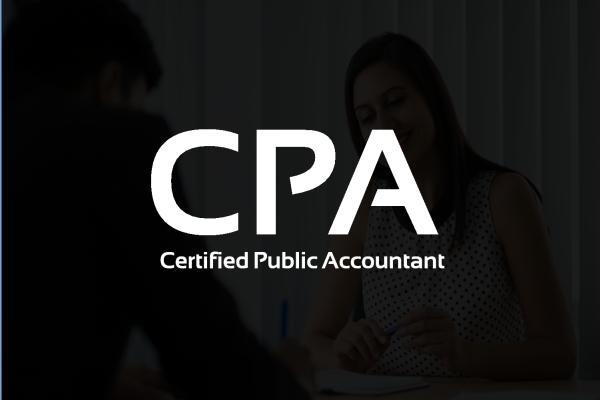Exam Date: August 17, 2025
The Swiss Certified Public Accountant (CPA) is a prestigious qualification awarded by EXPERTsuisse, the Swiss Association of Auditors, Tax Experts, and Fiduciaries. This certification is essential for individuals aspiring to pursue a career in auditing, accounting, or taxation within Switzerland.
Eligibility Criteria
Who Should Pursue the Swiss CPA?
• Professionals in Accounting or Auditing: Individuals with a background in accounting, auditing, or related fields seeking to enhance their qualifications.
• Graduates of Swiss Universities or Higher Education Institutions: Those who have completed relevant academic programs and wish to specialize in auditing or accounting.
• International Professionals: Foreign-trained accountants aiming to practice in Switzerland, subject to recognition of their qualifications and additional requirements.
Language Proficiency:
• Proficiency in German is essential, as the majority of training and examinations are conducted in Germany.
Applicability
The Swiss CPA is applicable for:
• Auditors: Conducting statutory audits for companies and organizations.
• Tax Advisors: Providing tax consultancy services to individuals and businesses.
• Fiduciaries: Offering services related to accounting, payroll, and financial reporting.
• Financial Managers: Overseeing financial operations within organizations.
Registration Process
1. Educational Requirements :
o Completion of a recognized higher education program in accounting, auditing, or a related field.
o Accumulation of practical experience in the accounting or auditing sector.
2. Application to EXPERTsuisse:
o Submission of an application to EXPERTsuisse, including proof of educational qualifications and professional experience.
3. Approval and Enrollment:
o Upon approval, candidates are enrolled in the CPA training program, which includes theoretical coursework and practical training.
Exam Pattern
The CPA qualification process is divided into two main levels:
1. Certified Audit Professional (Level 1)
• Duration: Approximately 2 years.
• Structure:
o Introductory Phase: Foundational modules covering topics such as:
Fundamentals of Accounting
Introduction to Auditing
National and International Accounting Standards
Planning and Execution of Audits
o Core Phase I: Advanced modules including:
IT and Data Analytics
Corporate Taxes
Law
Conclusion of an Audit and Reporting
Consolidated Financial Statements and Group Audits
Value Added Taxes
Specifics of a Limited Statutory Examination
2. Diploma Level (Level 2)
• Duration: Approximately 1 year, following a year of practical experience.
• Structure:
o Core Phase II: Specialized modules tailored to the candidate's area of interest.
o Focus Modules: A selection of topic-based modules, such as:
Advanced Auditing Techniques
International Taxation
Forensic Accounting
Financial Risk Management
o Diploma Examination: A comprehensive assessment covering all modules.
Detailed Syllabus
Level 1: Certified Audit Professional
• Accounting:
o National and International Accounting Standards
o Financial Reporting
o Accounting for Corporations and SMEs
• Auditing:
o Planning and Execution of Audits
o Risk Assessment
o Audit Evidence and Documentation
o Reporting and Communication
• Taxation:
o Corporate Taxation
o Value Added Tax
o International Taxation
• Law:
o Swiss Commercial Law
o Contract Law
o Corporate Governance
• Information Technology:
o IT and Data Analytics in Auditing
o Use of Audit Software Tools
Level 2: Diploma Level
• Advanced Auditing:
o Complex Audit Techniques
o Audit of Group Financial Statements
o Forensic Auditing
• Specialized Areas:
o International Taxation
o Financial Risk Management
o Forensic Accounting.
1. Structured Study Plan
• Develop a Study Schedule: Allocate specific time slots for each subject area, ensuring comprehensive coverage of the syllabus.
• Set Realistic Goals: Break down the syllabus into manageable sections and set achievable targets.
2. Utilize Quality Study Materials
• Official Resources: Refer to materials provided by EXPERT suisse and other recognized institutions.
• Supplementary Materials: Use textbooks, online courses, and practice exams to reinforce learning.
3. Active Learning Techniques
• Practice Regularly: Solve past exam papers and sample questions to familiarize yourself with the exam format.
• Join Study Groups: Collaborate with peers to discuss complex topics and share insights.
4. Time Management
• Prioritize Topics: Focus on areas of weakness and allocate more time to challenging subjects.
• Regular Breaks: Incorporate short breaks during study sessions to maintain focus and prevent burnout.
5. Mock Exams
• Simulate Exam Conditions: Take timed mock exams to build stamina and improve time management skills.
• Review Performance: Analyze mistakes and identify areas for improvement.
6. Seek Professional Guidance
• Tutoring Services: Consider enrolling in preparatory courses offered by institutions such as PwC and KPMG, which provide structured training and support.
September 25, 2025 ( written exam)
6-7 october, 2025 ( oral exam)
EXPERTsuisse Official Website PwC Switzerland - CPA Education KPMG Switzerland - CPA Training
To qualify for the Swiss CPA, candidates typically need:
A Swiss university degree or a federal diploma in a relevant field such as accounting, finance, or business administration.
At least seven years of practical experience in the commercial sector, with a minimum of three years in a qualified position.
Completion of the Certified Audit Professional (CAP) program, which includes core modules in accounting, auditing, and related subjects.
The CPA training is structured in a two-level model:
Certificate Level: Certified Audit Professional (CAP)
Consists of core modules totaling 430 units, typically completed over two years.
Modules include subjects like Fundamentals of Accounting, National and International Accounting, and Planning and Execution of an Audit. pwc.ch+5scribd.com+5hslu.ch+5
Advanced Federal Professional Examination (AFPE)
Upon successful completion of the CAP, candidates proceed to the AFPE, which is the final examination for the Swiss CPA.
The AFPE assesses advanced knowledge and practical skills in auditing, accounting, and related areas.
